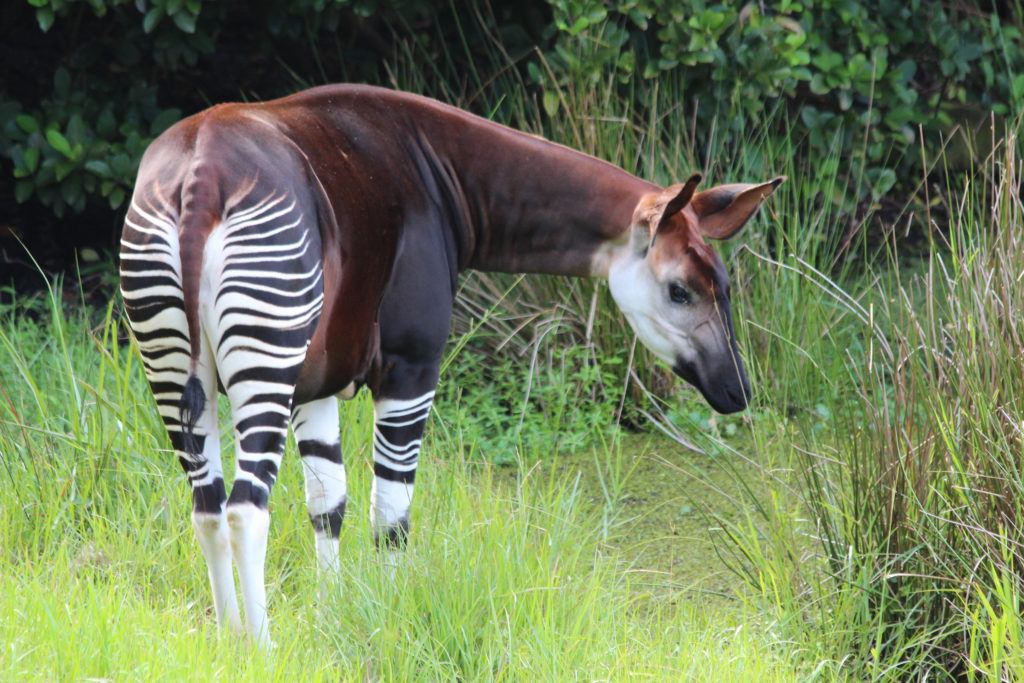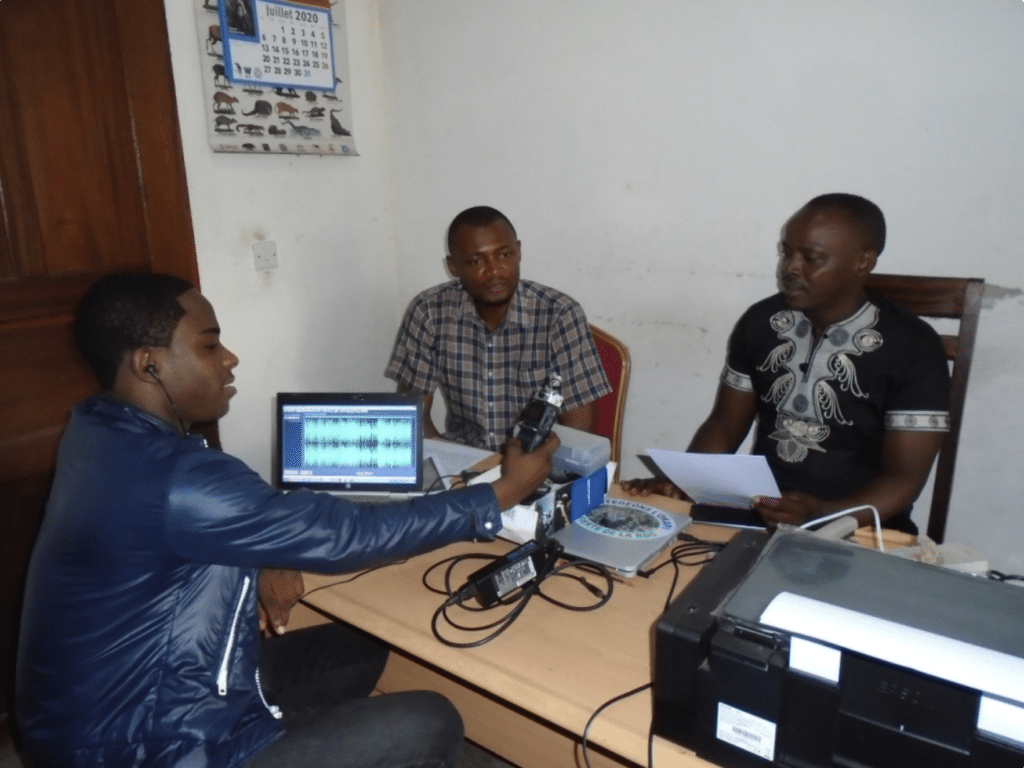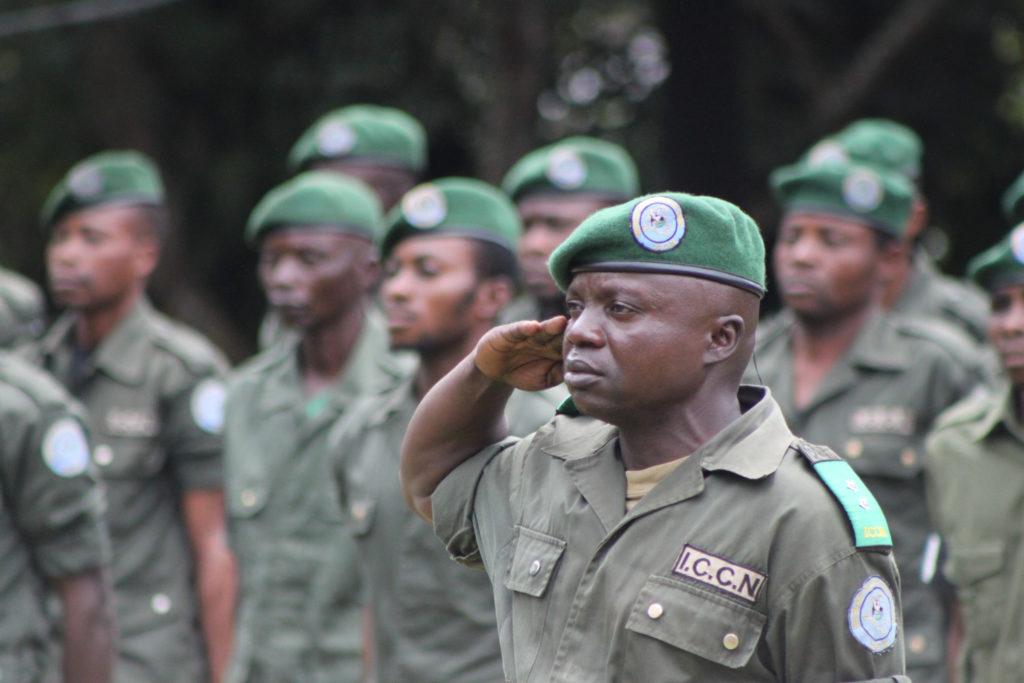Neighboring the canopied forests where okapi and forest elephants call home, Mambasa and other nearby villages are preparing for the imminent rise of COVID-19 cases. Even in these remote reaches of the Democratic Republic of the Congo, danger from the global pandemic looms.
The region is home to long-standing tropical forests, rich in biodiversity and unique species. The okapi, also known as the forest giraffe, is found only in this part of the world.
Rural communities surrounding the Okapi Wildlife Reserve have limited access to news and essential information due to an underdeveloped communications infrastructure. The Okapi Conservation Project (OCP), a WCN Conservation Partner, plays a vital role as an information source and news outlet to these local communities and has done so for several decades.
OCP partners with the main broadcast radio in the area, providing communities with daily news, educational programs and, most recently, information to stay ahead of the spread of COVID-19 and the potential re-emergence of Ebola. Though the Ebola virus was recently eradicated in the area, new cases in western provinces are raising the alarm. The region is also being affronted by recent outbreaks of the bubonic plague and Monkeypox, and OCP broadcasts are educating listeners about symptoms and tips to prevent further spread.
In addition to functioning as the sole source for pressing news and knowledge on disease prevention, OCP broadcasts also dispense a wealth of other information to the local community. They distribute educational content covering local ecology, sustainable agricultural techniques, and the work of local rangers.
By delivering informative content, OCP empowers people surrounding the Reserve with life-saving knowledge, know-how to develop their local economies, and strategies to protect the surrounding ecology to benefit both people and wildlife.
In addition to broadcasts covering the work of rangers, OCP provides crucial support and collaborates with local forest rangers. Also known as ICCN eco-guardians, they are tasked to protect wildlife and habitats from illegal hunting, logging, mining, and other illicit activities from armed groups. Their work protects not only the endangered okapi, threatened forest elephants prized for their tusks, and its oxygen-providing forests, but also the local communities from violence posed by armed militias.
Though OCP traces its roots in conserving the enigmatic okapi and its habitat, its work has proven to be all-encompassing––from information dissemination during health crises to cultivating local partnerships. Since its formation over thirty years ago, OCP has worked through the most volatile conditions to protect okapi and support local communities in the face of poaching and endemic disease.




